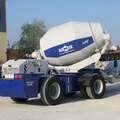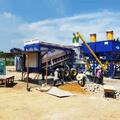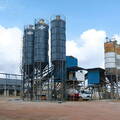In the world of construction, the ability to deliver concrete efficiently and on time is critical to the success of any project. Traditionally, large-scale concrete batching plants served the needs of most construction projects, supplying massive quantities of ready-mixed concrete to a broad area. However, the rise of small concrete batch plants has brought about a significant transformation in the industry, particularly in local concrete delivery systems. These compact, mobile batching plants offer several advantages that are revolutionizing how concrete is delivered to construction sites, especially in urban environments or smaller projects.
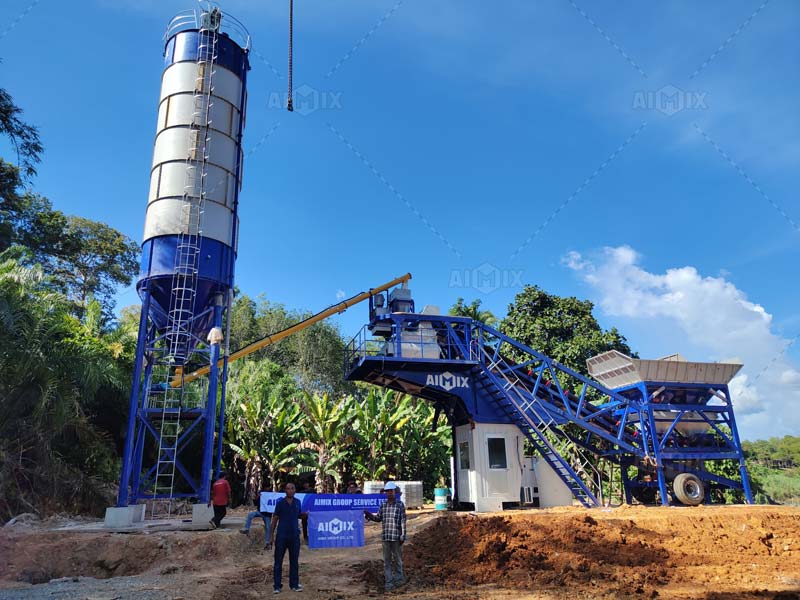
1. Increased Flexibility and Accessibility
One of the key benefits of small concrete batch plants is their flexibility. Unlike traditional stationary plants that require substantial space and are typically located outside urban areas, small batch plants can be set up and operated at or near the construction site. This proximity to the project site reduces the time and cost associated with transportation, as the concrete is mixed directly at the location where it is needed.
The small size of these plants also allows them to be more easily relocated. For projects that require concrete in multiple locations or over a large, dispersed area, a small concrete batch plant can be moved to different sites as needed, streamlining the process and eliminating the need for extensive logistics. This increased flexibility enables construction companies to work more efficiently, particularly on projects in urban settings where space is limited.
2. Faster Concrete Delivery
In traditional concrete delivery systems, the transportation of pre-mixed concrete from a central batching plant to the construction site can take time—especially in cities with traffic congestion. Delays in delivery can affect project timelines and lead to costly downtime. Small concrete batch plants help mitigate these challenges by producing fresh concrete on-site, ready for use when needed. This leads to faster delivery times and ensures that construction projects remain on schedule.
Additionally, small concrete batch plants can be designed with advanced automation features that control the mixing process. With the push of a button, operators can quickly adjust the mix to match project requirements, enabling on-demand production. The ability to produce concrete quickly and efficiently helps eliminate delays and ensures that materials are available exactly when they’re needed.
3. Cost Savings for Local Projects
Small concrete batch plants can lead to significant cost savings, especially for small to medium-sized projects. With traditional concrete delivery systems, transportation costs can account for a significant portion of the overall cost of concrete. By producing concrete directly on-site, small batch plants eliminate the need for long-distance delivery, reducing fuel costs and minimizing the risk of delays that often lead to increased expenses.
In addition, small concrete batch plants have lower operational costs compared to large-scale plants, making them an affordable option for local construction businesses. The lower capital investment required to set up and operate small batch plants also means that smaller contractors and developers can enter the market, opening up new opportunities for business growth. These savings are particularly attractive for contractors working on residential, commercial, or infrastructure projects with more limited budgets. If you are looking for cost-effective batch plant solution for your concrete production business, you are suggested to conctact Aimix Group to get the most suitable solution.
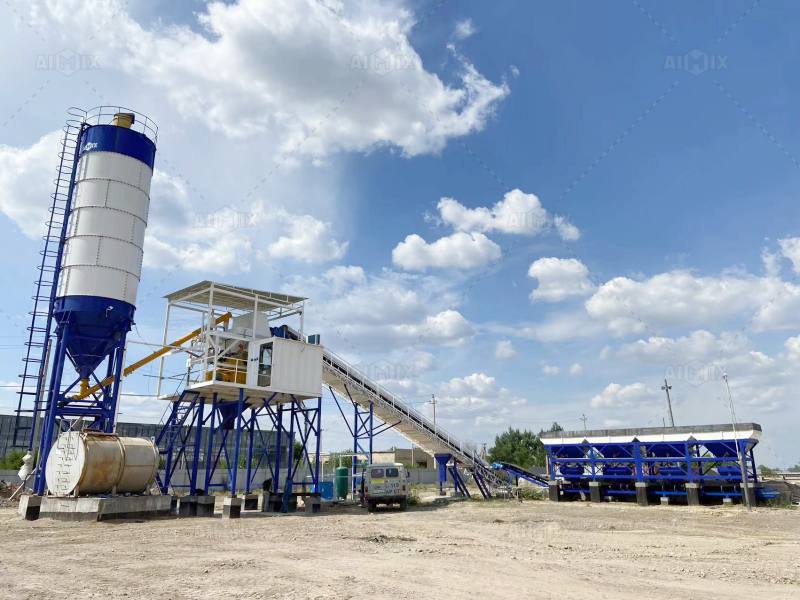
4. Improved Concrete Quality and Customization
Another advantage of small concrete batch plants is their ability to produce high-quality, customized concrete mixes. Unlike ready-mix concrete that may have been sitting in transit for hours before reaching the site, concrete produced on-site is always fresh. This results in improved workability and overall quality, which is especially important for projects that require specific mix designs or high-performance concrete.
Small batch plants also allow for greater customization of the concrete mix to meet the unique requirements of a project. Whether it’s adjusting the water-to-cement ratio, adding supplementary cementitious materials (like fly ash or slag), or creating special color mixes for architectural applications, small concrete batch plants offer flexibility in design. This ability to tailor mixes on demand enhances the precision and durability of concrete, leading to better end results and reducing the chances of defects or failures during construction.
5. Sustainability and Environmental Benefits
Sustainability is a growing concern in the construction industry, and small concrete batch plants are helping meet these environmental challenges. Large concrete batching plants typically generate significant waste, especially when excess concrete is mixed. Small concrete plants, by contrast, reduce waste by producing only the amount of concrete required for a specific job, minimizing the potential for surplus materials that must be disposed of.
Additionally, small batch plants often come with water recycling systems, allowing excess water used in the mixing process to be collected, filtered, and reused in future batches. This reduces water consumption and helps contractors comply with local environmental regulations. Many small batch plants are also designed with energy-efficient systems, further reducing their environmental footprint.
By operating locally and minimizing transportation distances, small concrete batch plants also contribute to reduced carbon emissions associated with long-haul concrete deliveries. This reduction in emissions makes small batch plants a more sustainable choice, appealing to contractors who want to demonstrate their commitment to green building practices.
6. Improved Project Management and Coordination
The use of small concrete batch plants offers enhanced control and coordination for construction projects. With concrete being produced on-site, construction teams can more easily monitor the batching process and make adjustments in real-time to ensure that the concrete meets specifications. This centralized control leads to better project management, allowing contractors to make more informed decisions about timing, resources, and overall project schedules.
In addition, small batch plants often feature user-friendly control systems that allow operators to oversee the production process and maintain quality without requiring extensive training. This ease of operation reduces the chance of human error and improves safety at the job site, ensuring that workers and equipment are kept in optimal working conditions.
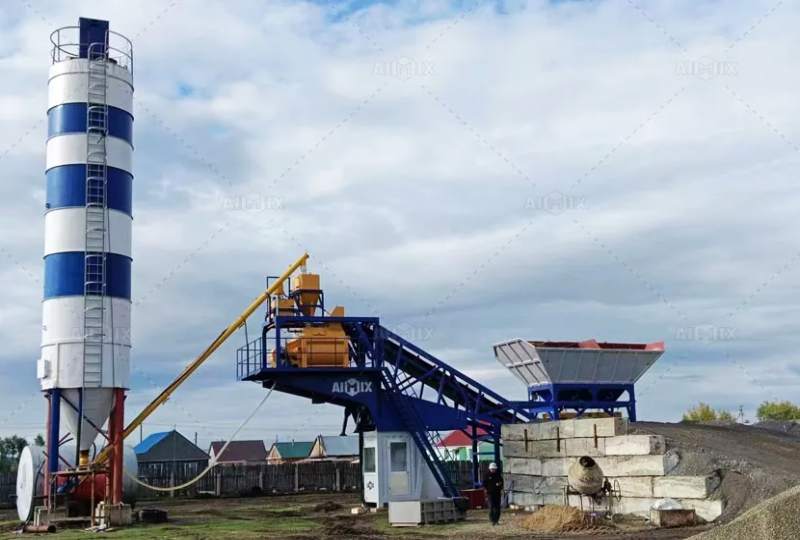
Conclusion
Small concrete batch plants are revolutionizing the local concrete delivery system by offering significant advantages in terms of flexibility, cost savings, quality, and sustainability. They provide an efficient and reliable solution for contractors who need to produce concrete on-demand, particularly in areas with limited access to traditional batching plants or for smaller-scale projects that require precise control over mix designs. By improving delivery times, reducing transportation costs, and enabling greater customization, small concrete batch plants are helping to transform the construction industry, one project at a time. With their increased accessibility and environmental benefits, these plants are an essential tool for contractors looking to stay competitive in an evolving market.

